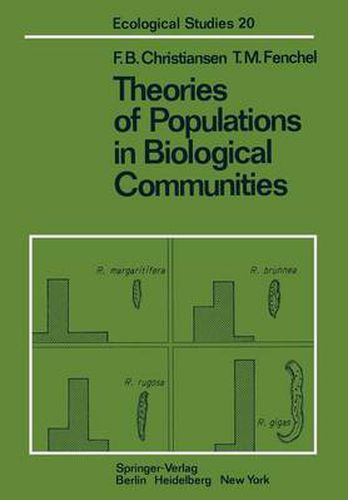Readings Newsletter
Become a Readings Member to make your shopping experience even easier.
Sign in or sign up for free!
You’re not far away from qualifying for FREE standard shipping within Australia
You’ve qualified for FREE standard shipping within Australia
The cart is loading…






This title is printed to order. This book may have been self-published. If so, we cannot guarantee the quality of the content. In the main most books will have gone through the editing process however some may not. We therefore suggest that you be aware of this before ordering this book. If in doubt check either the author or publisher’s details as we are unable to accept any returns unless they are faulty. Please contact us if you have any questions.
When we wrote this book it was, admittedly, flrst of all for the sake of our own enjoyment and enlightenment. We will, however, add our sincerely meant (but rather traditional) hope that it will prove interesting to graduate students, to colleagues and to anyone else, who will bother to read it. The book was written as a joint effort by a theoretically inclined population geneticist and an experimental ecologist who share opinions on what is interesting in the fleld of theoretical ecology. While we believe that qualifled natural history is of indisputable intrinsic value, we think that ecology is a natural science which should have a theoretical framework. On the other hand, theoretical ecology must draw its inspiration from nature and yield results which give insight into the flndings of the naturalist and inspire him to make new observations and experiments. Without this relationship between fleld biology and theory, mathe matical ecology may become a discipline totally divorced from biology and solve-albeit interesting-mathematical problems without signiflcance for ecology. Therefore, in addition to theoretical population biology (including some original models) the book also discusses observational data from nature to show how the theoretical models give new insight and how observations give rise to new theoretical thought. While no book on ecology could do without the mention of the hare-lynx example (and ours is, therefore, no exception) we have tried to bring new examples mainly derived from one of the authors’ fleld of experience: microbial ecology and marine biology.
$9.00 standard shipping within Australia
FREE standard shipping within Australia for orders over $100.00
Express & International shipping calculated at checkout
This title is printed to order. This book may have been self-published. If so, we cannot guarantee the quality of the content. In the main most books will have gone through the editing process however some may not. We therefore suggest that you be aware of this before ordering this book. If in doubt check either the author or publisher’s details as we are unable to accept any returns unless they are faulty. Please contact us if you have any questions.
When we wrote this book it was, admittedly, flrst of all for the sake of our own enjoyment and enlightenment. We will, however, add our sincerely meant (but rather traditional) hope that it will prove interesting to graduate students, to colleagues and to anyone else, who will bother to read it. The book was written as a joint effort by a theoretically inclined population geneticist and an experimental ecologist who share opinions on what is interesting in the fleld of theoretical ecology. While we believe that qualifled natural history is of indisputable intrinsic value, we think that ecology is a natural science which should have a theoretical framework. On the other hand, theoretical ecology must draw its inspiration from nature and yield results which give insight into the flndings of the naturalist and inspire him to make new observations and experiments. Without this relationship between fleld biology and theory, mathe matical ecology may become a discipline totally divorced from biology and solve-albeit interesting-mathematical problems without signiflcance for ecology. Therefore, in addition to theoretical population biology (including some original models) the book also discusses observational data from nature to show how the theoretical models give new insight and how observations give rise to new theoretical thought. While no book on ecology could do without the mention of the hare-lynx example (and ours is, therefore, no exception) we have tried to bring new examples mainly derived from one of the authors’ fleld of experience: microbial ecology and marine biology.